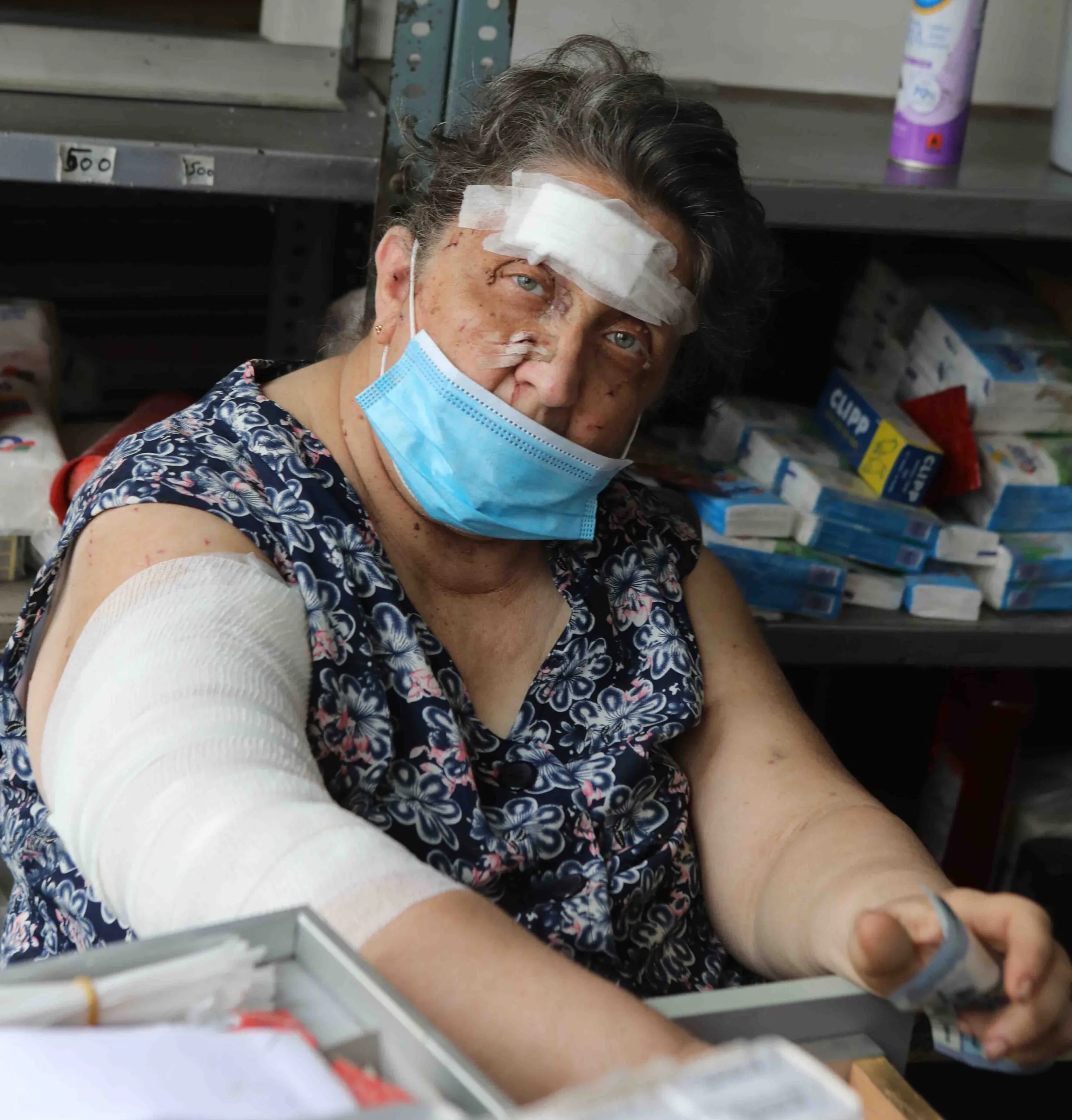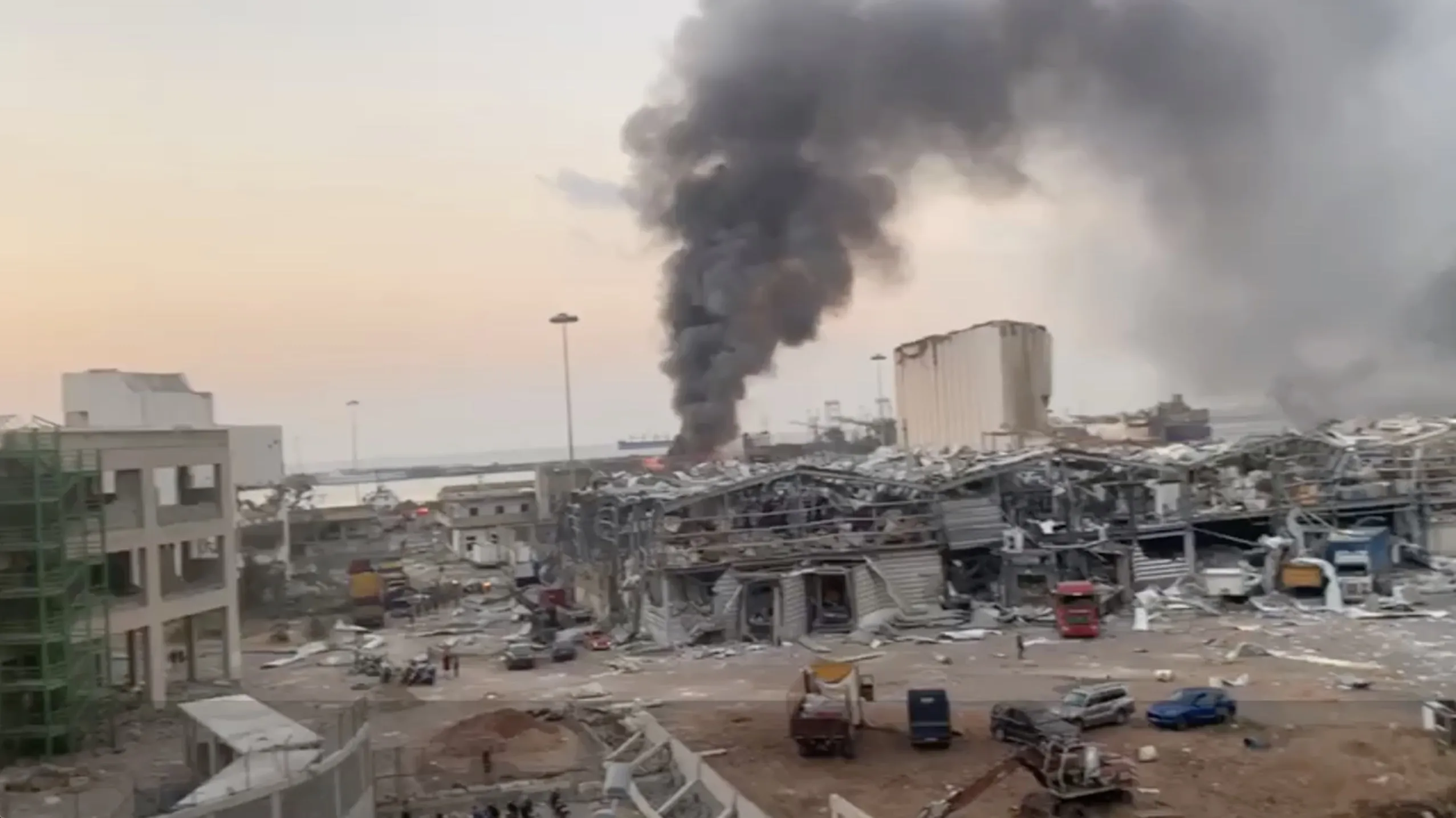Siham Tekian, 67, was at home in Beirut when the double explosions happened at the city’s port on Tuesday. The blasts destroyed the building where she lives and works running a grocery store on the ground floor. She’s been sleeping on the street since the explosions occurred.
“This is my third night sleeping on the streets. Even on the night of Tuesday to Wednesday, right after the explosion, I came back from the hospital, and I, since I no longer had a home, took a plastic chair and I dozed off, sitting on the pavement,” she says. “Yesterday evening, some young people brought me a sofa and put it on the pavement. It was a broken, dingy sofa, but hey it’s better than nothing. Tonight, I’ll be sleeping on the street too.”
“Life stopped for five long seconds.”
The explosions left Siham with 15 stitches in her arm, five in her forehead, 10 in her stomach. Her body has been grazed by broken glass.
“I was home when the explosion occurred. To me, it’s like life had stopped for five really long seconds, and then I saw blood, nothing but blood, all over my body. There was nothing left of the house. I walked to the entrance; the door was smashed. And I went out into the street. A man I don’t know took me in his car to a hospital outside Beirut,” Siham says.


